Books
I am a voracious reader and have been for years (despite the best efforts of a few of my high school english teachers).
This section is a collection of books that I wanted to discuss, or thought noteworthy in some manner. It is in no way a complete list of what I read; it is not even a proper representation of my typical reading list. Nor is it a list of favorites; I can assure you that many books I love simply won’t be here.
For the Technical section, all the books are ones that I found useful during my self-education and thus recommend to those looking to learn.
Last Updated: 2023-06-21
Non-fiction
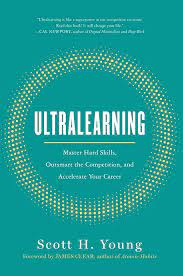 I go back and forth on this recommendation; it feeds in equal parts my self anxiety and poor mental self image about my accomplishments (and disappointment therein) to my desire and excitement to drive myself towards self improvement. (People are complicated, it turns out). It’s a short book and I found its content to hold enough potential that I took some notes on it and have applied it in parts to things I need to self-learn.
I go back and forth on this recommendation; it feeds in equal parts my self anxiety and poor mental self image about my accomplishments (and disappointment therein) to my desire and excitement to drive myself towards self improvement. (People are complicated, it turns out). It’s a short book and I found its content to hold enough potential that I took some notes on it and have applied it in parts to things I need to self-learn.
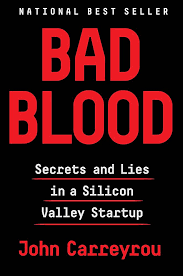 While studying engineering in college there was a special required class wherein we were instructed in no uncertain terms how easily something we create - a computer vision algorithm, a new aerospace design, a new method of making cheap motors - could easily be turned into weapons. We reviewed cases of engineering gone astray that fell into the quote from the terrible move, "…were so preoccupied with whether or not they could, they didn’t stop to think if they should." I think about that class sometimes as I work on robotic automation of tasks. I suspect the sociopathic tendencies of those in charge at Theranos wouldn’t have allowed such a class to reach through to them. But it might have helped.
While studying engineering in college there was a special required class wherein we were instructed in no uncertain terms how easily something we create - a computer vision algorithm, a new aerospace design, a new method of making cheap motors - could easily be turned into weapons. We reviewed cases of engineering gone astray that fell into the quote from the terrible move, "…were so preoccupied with whether or not they could, they didn’t stop to think if they should." I think about that class sometimes as I work on robotic automation of tasks. I suspect the sociopathic tendencies of those in charge at Theranos wouldn’t have allowed such a class to reach through to them. But it might have helped.
This book also helps my imposter syndrome, as “fake it till you make” applied on such a scale allows me to better situate that at even those whom are heralded as revolutionaries might just be clueless.

A book as powerful as it is short, the author presents essays outlining why property violence is a necessary evil in the fight for climate legislation. He presents examples of previously successful peaceful mass movements, such as civil rights, and argues that the success of their peaceful movements were empowered and possible only when paired with destruction of property; there must be financial costs to refusing to bend to the people’s will; an alternative viewpoint to those histories.
I often think of this work, and think it will become more relevant in short order for better or worse. The moral challenge presented by the author makes for a fascinating conversation to be had.
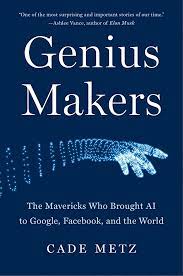 Given that I have been trying to apply deep learning techniques to robotics and real world applications for the past few years, this book allowed a nice look into the personalities and history of some of the technologies I’ve watched revolutionize so many fields. Perhaps the most interesting bit worth noting was the sheer scorn the scientific community held for neural networks, to the point of refusing to accept that they could accomplish even simple tasks even as their successes piled in. It’s an excellent reminder to check your own potential self biases.
Given that I have been trying to apply deep learning techniques to robotics and real world applications for the past few years, this book allowed a nice look into the personalities and history of some of the technologies I’ve watched revolutionize so many fields. Perhaps the most interesting bit worth noting was the sheer scorn the scientific community held for neural networks, to the point of refusing to accept that they could accomplish even simple tasks even as their successes piled in. It’s an excellent reminder to check your own potential self biases.
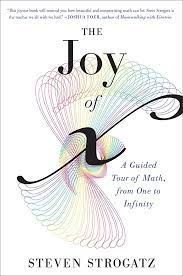
Sure I wouldn’t have appreciated a book about the history of calculus when I was in highschool, but seeing the gaps of why and how much of what I’ve taken for granted being invented. I had a decent education but I’m convinced that my classes severely lacked discussions of application that would have underpinned the value of what I was learning.
Quoting mathematician Edward Frenkel: “What if at school you had to take an art class in which you were only taught how to paint a fence? What if you were never shown the paintings of Leonardo da Vinci and Picasso? Would that make you appreciate art? Would you want to learn more about it? I doubt it…Of course this sounds ridiculous, but this is how math is taught.”
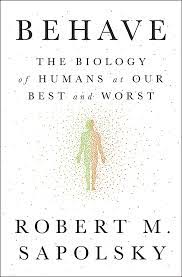
Recommended to me by my wife (whom has a PhD in Neuroscience, to drop some credentials here), Behave is the one book that looks into the science of individual and societal behavior of humans. To get an understanding of why humans are humans, read this book.
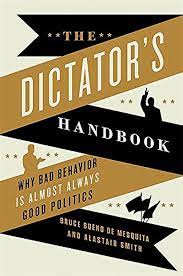
If you want to understand the why of politics for any size of organization - bureaucracies, corporations, governments - and want to understand why bad behavior is often a requirement to rule, then I recommend reading this book. It is an excellent study of key players in several types of organizations as researchers argue for a set of rules that apply to any organizations politics.
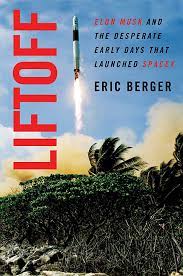
Liftoff presents an in-depth look at the start of SpaceX through the eyes of the engineers and technicians that actually made it possible. There are plenty of people that take issue with the founder/funder because he’s an annoying bombastic bastard billionaire, and who would in their right mind would want to subject themselves to more of his childish mannerism, false promises, or his support for the far right? It’s not an issue here; Liftoff properly attributes the success of the early Falcon launches to the people who built it through blood sweat and tears. (which, given the history of those first rockets, is an accurate statement, not an idiom).
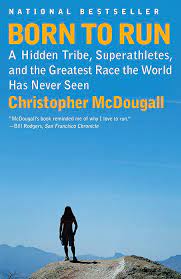 Many, many years ago I read this book on a whim. My work at the time formed a twice-yearly amateur running group to make it through Ragnar Relays; 200 mile relay races that take ~24 hours to complete. This was during one of the low periods of my life, and I found myself wondering if I could ever participate in a challenge that seemed so daunting to me. It had been years since I last attempted running, and it was a damned near collapse from chest pain trying to run a single block. The book is almost magical in its ability to make you feel a natural urge to just go and run.
Many, many years ago I read this book on a whim. My work at the time formed a twice-yearly amateur running group to make it through Ragnar Relays; 200 mile relay races that take ~24 hours to complete. This was during one of the low periods of my life, and I found myself wondering if I could ever participate in a challenge that seemed so daunting to me. It had been years since I last attempted running, and it was a damned near collapse from chest pain trying to run a single block. The book is almost magical in its ability to make you feel a natural urge to just go and run.
Since reading it I have developed a habit of running to calm and center myself; just a few years ago I hit a personal best of 777 miles in a year (which I have no intention of surpassing). I will note that the discussion of barefoot running, which I did try for a few years, has not aged well.
Fiction

This is my favorite works from Cory Docotorow, whose writing I have a love/hate relationship with. His works, to me, slide between brilliant and drivel. Unauthorized Bread and Radicalized are both short stories which can be found around the web (or contained in a short story collection titled Radicalized, which is why I paired them together).
Unauthorized Bread so perfectly encompassed the mountain of problems rent seeking internet enabled technologies will primarily affect the poor. It lays out a wonderful argument for owning your technology and what is right for the user will always be at odds with fanatical need to extract profit from every aspect of every product.
Radicalized is quite a bit darker, asking why those begrieveed by America’s dystopian healthcare system are yet to become violently radicalized. After reading his story and the essay collection How to Blow Up A Pipeline I find myself wondering how long until we begin to see more violence from an increasingly desperate and disenfranchised population.
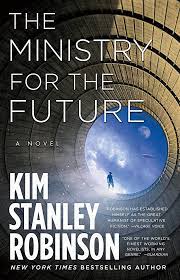
The opening chapters to the Ministry of the Future is a slow, methodical, haunting, all-too-real narrative of a wet-bulb 35°C heat wave in India. The imagery here is so powerful that, even though I hated this book, I still recommend everyone read those opening scenes. There’s much I can say about this book; its interesting take having bureaucracy as a character, the author being way too high on cryptocurrency, or the author’s take on the rise of climate oriented terrorism (which ties it neatly to How to Blow Up a Pipeline, also listed here). But if there is a single take away, it’s that damned opening scene that sticks with me anytime I feel the sun beat down on me.
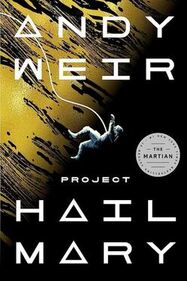
I stated at the top of this section that many of my favorite works simply won’t be listed here on account that I aim more to present works to inspire discussion more so than straight recommendation. Even still, Project Hail Mary is a masterpiece. If you haven’t read it, ignore everything I’m about to say and go read it blind. Emphasis on blind; read no descriptions, discussion, or book jacket; just dive in and read.
As for my thoughts on the novel? Andy Weir is not a strong writer, excelling at writing only a single character type. Still, he so perfectly packages his enthusiasm for science and the human spirit of exploration and ingenuity and converts it into a page turner. Every sense of wonder or drive to invent that has ever existed in me as a maker and engineer is enthralled when reading Weir’s works.
I wish I could properly encapsulate that “Engineer sciences a solution” as a genre and find other works that entertain me so well, but am yet to find a single example of someone outside Weir that can create such a piece.
Technical
This is slightly different, in that these books are more ones that I not only enjoyed but found helpful, and would recommend to those wishing to learn.
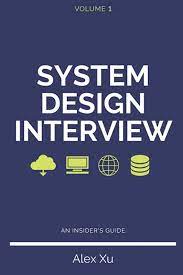
This book, and its sequel, ended up being one of the best works for introducing junior to senior developers to complicated patterns in cloud infrastructure and software designs. Even if you’re not looking to interview soon, it’s a fun cookbook of different design patterns being utilized at many popular tech companies.
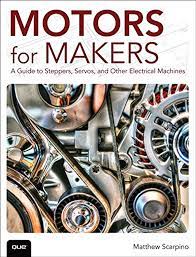
This is a perfect guide to electric motors, their classifications, how they work, and how to utilize them for projects. It’s short, simple, and contains exactly what you need to know for any applications.
 This is a hard to find book; I read the first edition, whereas the second edition seems to be what is available now. It is a walkthrough of techniques for designing functional parts for FDM 3d printers. At a time when the 3d printing hype was running full cycle, there was surprisingly little resources about how to make functional parts; it seemed that the majority of the resources around 3d printing was for making cosmetic toys than anything functional.
This is a hard to find book; I read the first edition, whereas the second edition seems to be what is available now. It is a walkthrough of techniques for designing functional parts for FDM 3d printers. At a time when the 3d printing hype was running full cycle, there was surprisingly little resources about how to make functional parts; it seemed that the majority of the resources around 3d printing was for making cosmetic toys than anything functional.
If you utilize FDM printers for functional parts, it’s worth a read. I suspect that with the dropping costs of resin and other style printers that this information will slowly become antiquated, but at the moment I still find it worth recommending.
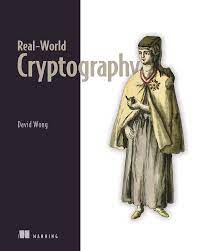
This is a great introduction to the current state of art and techniques in cryptography. While a mathematical background can help, it’s not required to understand the concepts discussed and techniques utilized. It was an excellent dive into best practices of encryption that I’ve leaned on while building out features in my own projects.

This book acted as an excellent introduction to deep reinforcement learning, with some caveats. It’s a bit dated now based on its usage of the OpenAI gym library (which is now gymnasium and no longer associated with OpenAI), and as a result its examples probably have issue running now. Still, it was excellent for learning and building out my first Deep Q and A2C networks. I will note that the book disappointingly does not cover continuous action spaces or self-play, though this may be more to time since its publication than a knock against it.
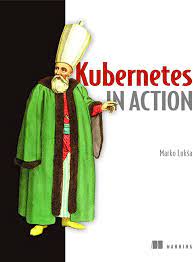
I’ve been working with Kubernetes for a few years now; this is the book that acted as a lovely and easy-to-approach introduction to the complicated workhorse that’s become a standard in many shops. …Though you should probably look at the second edition as a lot has changed since I first picked up Kubernetes.
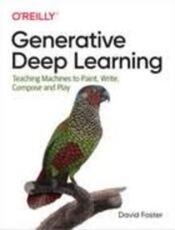
I ended up diving into this book looking or solutions on a project utilizing GANs, something I haven’t had much opportunity to work on outside of introductory projects. I found the explanations of the state-of-the-art for GAN generation, loss functions, and what/why the effects they have on your model and training refreshingly easy to follow.